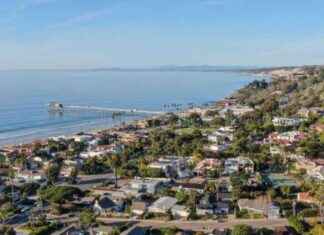For the first time since its commissioning in 1995, all the reactors at the Ukrainian nuclear power plant in Zaporizhia, the largest in Europe, stopped working yesterday. The Russian-controlled plant’s last two operating reactors were disconnected from the power grid after nearby fires damaged overhead power lines, Ukraine’s state nuclear company Energoatom said. A situation that occurs in the midst of growing international concern about the impact of the bombing in the area of ??the plant and in full negotiations between the International Atomic Energy Agency (IAEA) and both parties to the conflict to gain access to the site.
“The invaders’ actions caused a complete disconnection from the power grid of the Zaporizhia NPP for the first time in its history,” Energoatom said. According to the Ukrainian operator, fires on the territory of the thermal power plant, located near the nuclear power plant, twice caused the disconnection of the last line of communication connecting the site to the power grid. “Three other communication lines had previously been damaged during the Russian terror attacks,” he added.
A power outage to the plant could put out of action cooling systems essential to the safe operation of nuclear reactors, and emergency diesel generators are sometimes not unreliable. The operator, however, assured that “operations are being carried out to connect a reactor to the network.”
For weeks, Moscow and Kyiv have accused each other of attacks on this nuclear power plant, which has six reactors with a total capacity of 6,000 megawatts and has been occupied since March by Russian troops, although it continues to be operated by Ukrainian personnel under conditions of constant “stress”. , according to what workers have told the BBC.
Ukraine also accuses Russia of wanting to connect the plant to its power grid and of storing heavy weapons and using it as a base for attacks on Ukrainian positions. Moscow denies deploying weapons at the plant, saying there are only units providing security. Russia, in turn, accuses Ukrainian forces of carrying out drone attacks.
The situation at the plant has generated great concern over the danger that the confrontation could end up leading to an atomic incident with unpredictable consequences. The UN has called for a demilitarized zone to be established around the plant to ensure site security and allow for an IAEA inspection mission.
Yesterday the agency’s director general, Rafael Grossi, stated that there is a principle of agreement with Ukraine and Russia for his agency to carry out an inspection “in the coming days” and assured that “the risks are real.”
Meanwhile, Russian President Vladimir Putin yesterday signed a decree to increase the number of soldiers serving in the Russian Army by 137,000 people. According to the resolution, the number of troops in the country will rise to 1,150,628.
The decree, which takes effect Jan. 1, does not specify whether the armed forces will bolster their ranks with more recruits, increase the number of volunteer soldiers, or use a combination of the two. However, some Russian military analysts expect this increase to rely heavily on volunteers, a position that reflects the Kremlin’s concerns about the possible consequences of an attempt to increase conscription.
Russia has not said how many casualties it has suffered in Ukraine since the first weeks of the war, when it said 1,351 of its soldiers had been killed. Western estimates put the true number at least ten times higher, while Ukraine says it has killed or wounded at least 45,000 Russian soldiers since the conflict began six months ago.








